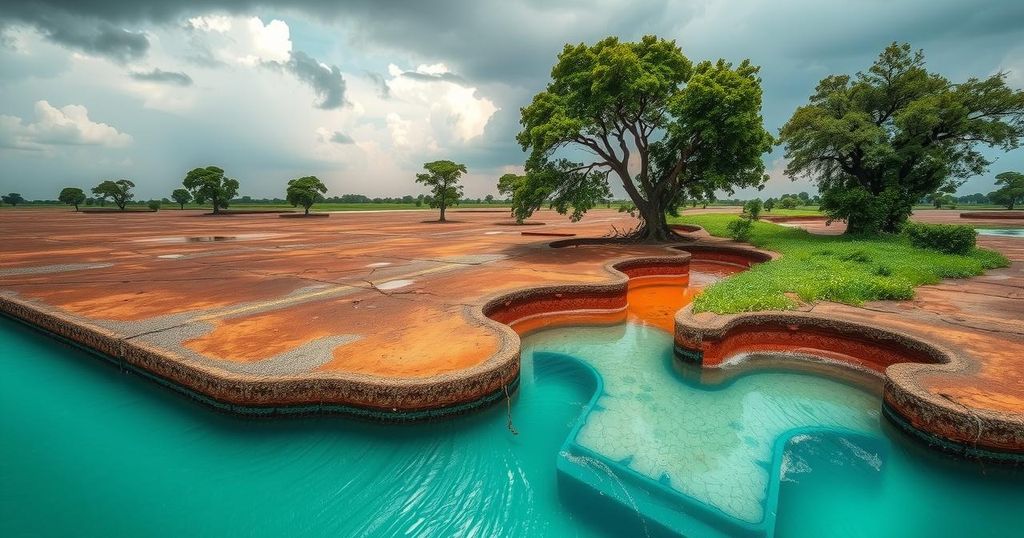Cyclone Chido has devastated northern Mozambique, displacing thousands and highlighting the growing impact of climate change in Southern Africa. The cyclone has caused significant damage, raising concerns about long-term humanitarian impacts, particularly for vulnerable populations. Enhanced disaster preparedness efforts in Malawi signify progress, but the region’s ongoing struggles with extreme weather necessitate a coordinated international response for resilience and recovery.
Cyclone Chido has wreaked havoc across northern Mozambique after making landfall on December 15, 2024, following its impact on Mayotte in the Comoros archipelago. The cyclone has displaced thousands in the provinces of Cabo Delgado and Nampula, underscoring an alarming trend of increasing frequency of devastating weather events attributed to climate change. Historically rare, tropical cyclones now occur with greater regularity in the region, with significant storms affecting southern African countries over the past few years.
The storm’s violent winds reached up to 260 km/h (160 mph) and resulted in catastrophic infrastructure damage, power outages, and fatalities, including two deaths in Pemba and a three-year-old drowning in Nampula. With over 250 millimeters of rain falling within 24 hours, the impact on vulnerable populations is severe, prompting a rapid response from humanitarian organizations. UNICEF has raised concerns about long-term consequences such as disrupted education, healthcare access, and the risks of waterborne diseases, particularly affecting children.
Preparations prior to the cyclone’s arrival indicated an improved readiness from Malawi’s institutions compared to past disasters. Enhanced coordination among national and district-level agencies was noted, aiming to mitigate the cyclone’s effects. However, the devastation from Cyclone Chido comes at a time when both Mozambique and Malawi are still grappling with the aftermath of earlier cyclones, including Cyclone Freddy in 2023 and Cyclone Idai in 2019, which have strained their recovery efforts.
Officials anticipate the cyclone will exacerbate existing food insecurity issues, with Malawi already suffering from drought conditions affecting the harvest. Mtilatila, Director of Climate Change and Meteorological Services in Malawi, emphasizes the necessity for holistic strategies in disaster preparedness, particularly through the development of resilient infrastructure and revised agricultural practices. As climate change continues to escalate the intensity of such natural disasters, international support is deemed essential for building resilience in these affected communities.
The article details the ravaging impact of Cyclone Chido on northern Mozambique and the surrounding regions, notably Malawi. It highlights the increasing frequency and severity of cyclones in Southern Africa, largely attributed to climate change. The discussion incorporates data regarding damages, responses from humanitarian organizations, and reflections from local officials on the urgent need for disaster preparedness and management strategies, given the region’s vulnerability to extreme weather events. This context emphasizes the significance of ongoing climate issues and humanitarian responses.
Cyclone Chido’s recent impact reveals a critical need for enhanced disaster preparedness and international support in Mozambique and Malawi. As the frequency of devastating storms intensifies due to climate change, local agencies and humanitarian organizations must work collaboratively to mitigate the effects on vulnerable populations. Future strategies must focus on resilience-building and infrastructural improvements to better withstand ongoing climate challenges. The need for immediate and long-term assistance is crucial as communities strive to recover and adapt to changing climatic conditions.
Original Source: www.dw.com






